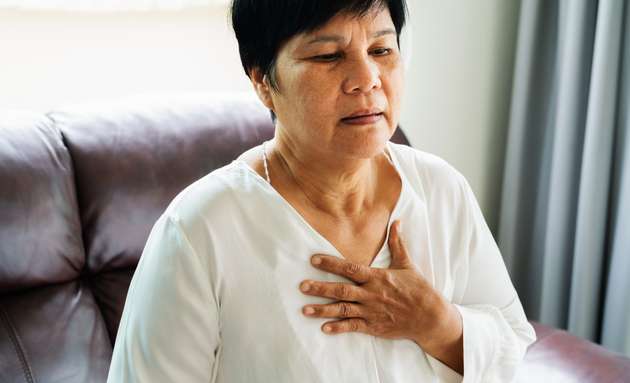More Hot Flashes Could Increase Risk of Heart Disease

Hot flashes are described as a sudden feeling of warmth, usually around the face, neck, and chest. Hot flashes are most common in menopausal women. However, if you’re experiencing hot flashes rather too frequently, it may be due to various underlying medical conditions - like a cardiovascular condition.
“..if hot flashes are persistent over time, it may indicate some increased cardiovascular risk” - Dr. Kathryn M. Rexrode, associate professor of medicine and chief of the Division of Women’s Health at Harvard Medical School.
The Link Between Hot Flashes and Increased Risk Of Heart Disease

A multi-site study called Swan, which has been observing more than 3000 women since 1996 found a correlation between hot flashes and an increased risk of heart attacks, stroke, and heart failure. The findings held true even after removing lifestyle risk factors like smoking, drinking, obesity, and hypertension.
So, what is it that establishes a link between hot flashes and increased heart diseases?
Hot flashes occur differently for different women - some may experience it persistently, and some may have it only a few times a year leading up to their menopause.
However, it is still not very clear as to what causes hot flashes in menopausal women. Some medical experts believe that the decline in oestrogen levels during menopause affects the hypothalamus of your brain - the part responsible for maintaining your body’s temperature. When you experience a hot flash, your hypothalamus automatically tries to cool down your body, resulting in dilated blood vessels that help get rid of the extra heat.
A 2017 study suggested that women who experience hot flashes frequently showed certain characteristics in their blood vessel response that were similar to the response in case of cardiovascular diseases.
“It's possible that the linings of their blood vessels do not respond well to stress brought on by hormone changes at menopause.” - Dr. Rexrode.
Women, Take Care of Your Heart Health

Over the last decade, medical experts and researchers have shifted their focus towards women’s health, mostly because of lack of evidence for numerous women-specific health conditions like breast cancer, cervical cancer, and polycystic ovary syndrome.
Until more evidence is established to find a direct link between hot flashes and an increased risk of heart diseases, it is advisable to take note of and reassess your overall health. Here are a few tips to get you started:
- Know your risk factors: Focus on established risk factors like high cholesterol, high blood pressure, excessive smoking, or diabetes.
- Check with your doctor on female-specific risk factors: If you’ve experienced pregnancy complications or have had an early menopause, you may be at a higher risk of heart diseases.
- Lead a healthy lifestyle: From physical exercise to a nutritional, balanced diet - ensure you are taking good care of your health.
If you’re already experiencing frequent hot flashes, check with your doctor about hormone replacement therapy (oestrogen therapy) which is believed to be one of the most effective treatment methods for hot flashes in menopausal women.
A lot of research is being done on areas of women’s health. So, keep an eye out for new developments and stay on top of your health, even before you enter the menopausal age.






